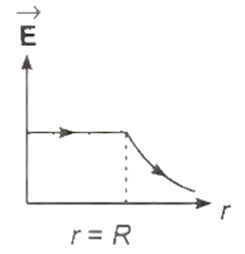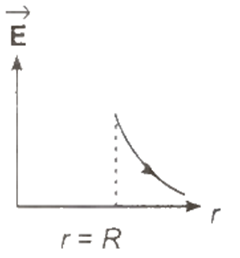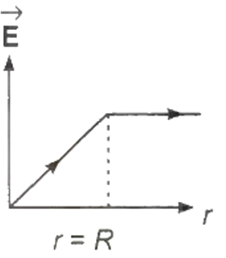 Multiple Choice Questions
Multiple Choice QuestionsA negatively charged oil drop is prevented from falling under gravity by applying a vertical electric field 100 Vm-1. If the mass of the drop is 1.6 x 10-3 g, the number of electrons carried by the drop is (g = 10 ms-2)
1018
1015
1012
109
Which one of the following graphs represents the variation of electric field with distance r from the centre of a charged spherical conductor of radius R?




Two conducting spheres A and B of radius a and b respectively are at the same potential. The ratio of the surface charge densities of A and B is
Three charges 2q, -q, -q are located at the vertices of an equilateral triangle. At the circumcentre of the triangle
the field is zero but potential is non-zero
potential is zero and the field is infinity
the field is non-zero but potential is zero
both the field and potential are non-zero
Millikan's oil-drop experiment established that
electric charge depends on velocity
specific charge of electron is 1.76 x 1011 Ckg-1
electron has wave nature
electric charge is quantized
Two identical conducting spheres carrying different charges attract each other with a force F when placed in air medium at a distance d apart. The spheres are brought into contact and then taken to their original positions. Now the two spheres repel each other with a force whose magnitude is equal to that of the initial attractive force.The ratio between initial charges on the spheres is
Small drops of the same size are charged to V volt each. If n such drops coalesce to form a single large drop, its potential will be
Vn
V/n
Vn1/3
Vn2/3
An electric dipole of length 1 cm is placed with the axis making an angle of 30° to an electric field of strength 104 NC-1. If it experiences a torque of Nm, the potential energy of the dipole is
0.245 J
2.45 × 10-4 J
24.5 × 10-4 J
245.0 J
Charges + 2q, + q and + q are placed at the comers A, B and C of an equilateral triangle ABC. If E is the electric field at the circumcentre 0 of the triangle, due to the charge + q, then the magnitude and direction of the resultant electric field at O is
E along AO
2E along AO
E along BO
E along CO
In co-axial cable the material used as spacer is
teflon (or) polyethylene
glass or mica
a gaseous medium
glass
